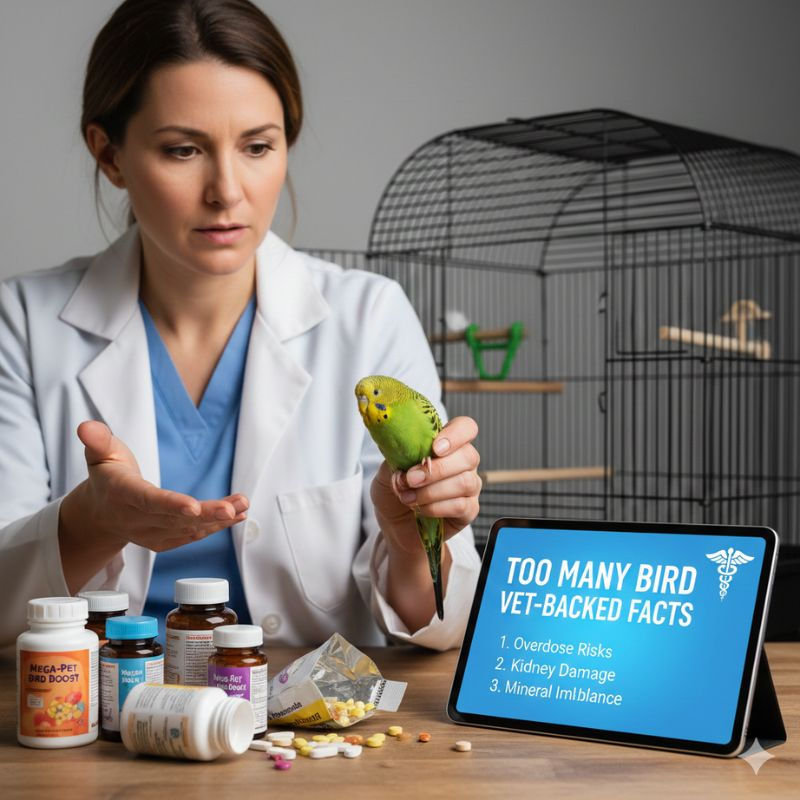Do Reptile Vitamins Really Work? Separating Myths from Facts
- petperchlove
- May 13, 2025
- 4 min read

When it comes to reptile care, one topic that often sparks debate is the effectiveness of reptile vitamins. Some believe a balanced diet is enough, while others swear by daily supplementation. So, what’s the truth? Do reptiles really need vitamins, or is it just a marketing myth? In this article, we'll dive deep into the facts, bust common myths, and explain how reptile supplements play a critical role in keeping your scaly friends healthy.
Understanding Reptile Nutrition: The Basics
Reptiles, whether they are lizards, snakes, turtles, or geckos, have unique dietary needs. Unlike mammals, reptiles depend heavily on external sources of vitamins and minerals to maintain vital bodily functions. In the wild, they receive these nutrients naturally from diverse prey, plants, and sunlight.
However, in captivity, replicating this variety is challenging. Store-bought insects or leafy greens often lack the necessary nutrients, leading to deficiencies. This is where reptile vitamins become crucial in bridging the nutritional gap.
The Role of Reptile Vitamins in Pet Health
1. Preventing Metabolic Bone Disease (MBD)
One of the most common health issues in pet reptiles is Metabolic Bone Disease, caused by calcium deficiency and lack of vitamin D3. Quality reptile supplements provide the right balance of calcium and D3, helping maintain strong bones and preventing deformities.
2. Boosting Immune Function
Just like humans, reptiles need vitamins like A, E, and C to strengthen their immune systems. These vitamins help reptiles resist infections, heal wounds faster, and maintain overall vitality.
3. Enhancing Skin Health and Shedding
Vitamins play a role in skin regeneration and shedding cycles. A lack of essential nutrients can lead to problematic shedding and dull, unhealthy skin.
4. Supporting Growth and Reproduction
For juvenile reptiles and breeding adults, vitamins are essential for healthy growth, development, and successful reproduction. Without adequate supplementation, growth rates slow down, and fertility decreases.
Common Myths About Reptile Vitamins — Debunked
Myth 1: A Good Diet Means No Need for Supplements
While feeding your reptile a varied and nutritious diet is vital, it's nearly impossible to match the diversity of nutrients they would get in the wild. Even gut-loaded insects or organic greens may not cover every nutritional need. Reptile supplements act as an insurance policy for your pet's health.
Myth 2: Too Many Vitamins Will Harm My Reptile
Over-supplementation can indeed be harmful, but this is only a concern when dosages are ignored. Following proper guidelines and using trusted products from sources like Kwik Pets ensures safe and effective vitamin intake.
Myth 3: UVB Lighting Eliminates the Need for Vitamin D3 Supplements
While UVB lighting is essential for reptiles, it doesn't always provide adequate vitamin D3 levels, especially if the bulb's output diminishes over time. A combination of UVB exposure and reptile vitamins containing D3 is the best approach.
How to Choose the Right Reptile Supplements
When selecting vitamins for your reptile, it’s important to choose reputable brands that offer species-specific formulations. Look for:
Calcium supplements with or without D3 (depending on UVB exposure).
Multivitamin powders for weekly use.
Gut-loading products for feeder insects.
Trusted pet supply stores like Kwik Pets offer a wide range of premium reptile vitamins and reptile supplements, ensuring quality and safety for your pet.
Best Practices for Supplementing Reptiles
Follow Dosage Instructions: Always adhere to manufacturer-recommended dosages.
Dust Feeder Insects Properly: Lightly dust live insects with vitamin powder before feeding.
Monitor Health Regularly: Watch for signs of deficiency or overdose and consult a reptile vet when in doubt.
Balance is Key: Supplements are not a substitute for a proper diet but a valuable addition.
Final Thoughts
So, do reptile vitamins really work? The answer is a resounding yes. They are a critical component of proper reptile care, addressing nutritional gaps that diet alone cannot fill. However, the key lies in using high-quality reptile supplements correctly and in moderation.
By sourcing your products from trusted retailers like Kwik Pets, and following best practices, you ensure your reptile stays healthy, vibrant, and full of life.
Frequently Asked Questions (FAQs)
Q1: How often should I give my reptile vitamins?
The frequency depends on the species, age, and diet of your reptile. Generally, calcium is given 2-3 times a week, while multivitamins are offered once a week. Always follow specific product instructions.
Q2: Can I give human vitamins to my reptile?
No. Human vitamins are not formulated for reptiles and can cause toxicity. Always use specially formulated reptile vitamins from trusted sources like Kwik Pets.
Q3: Are liquid reptile supplements better than powders?
Both forms are effective. Powders are commonly used for dusting feeder insects, while liquids are useful for direct oral supplementation. Choose what best suits your reptile's feeding habits.
Q4: How do I know if my reptile has a vitamin deficiency?
Signs include lethargy, poor appetite, difficulty shedding, soft or deformed bones, and dull skin. If you notice these symptoms, consult a reptile veterinarian.
Q5: Where can I buy trusted reptile supplements?
You can find high-quality reptile vitamins and reptile supplements at Kwik Pets, which offers a variety of products tailored to different reptile species.



Comments